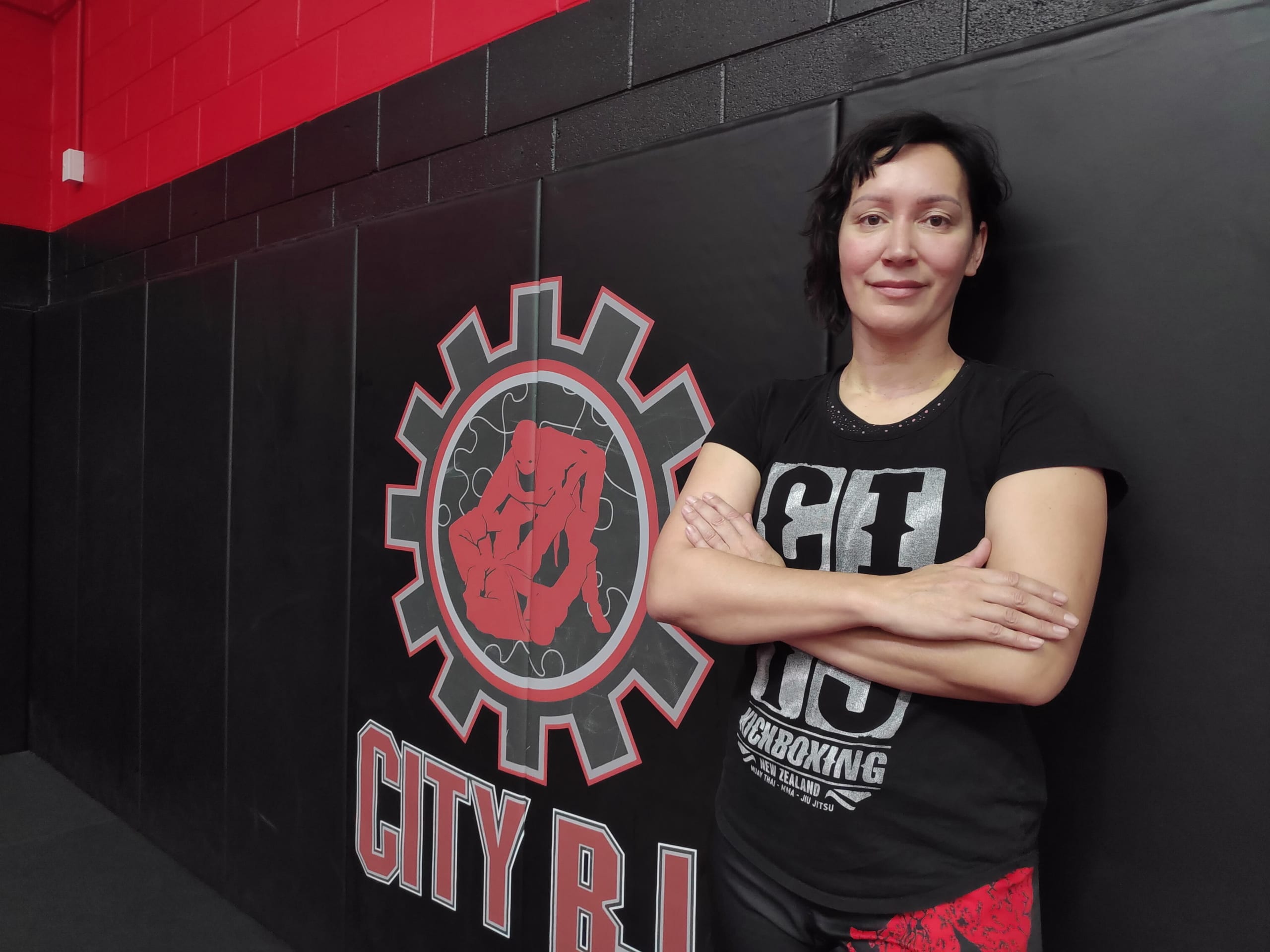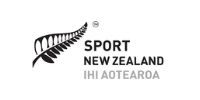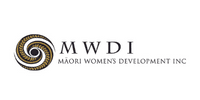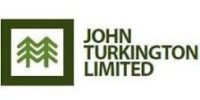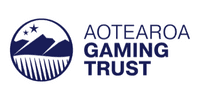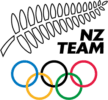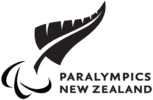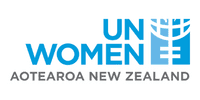Kia ora koutou! It’s Te Wiki o Te Reo Māori – Māori Language Week.
To celebrate we will profile a wāhine a day who is doing great things in play, active recreation or sport for Maori.
FINAL PROFILE I Te Wiki o Te Reo Māori: We profile Shenā Christian, Ngāti Huarere ki Whangapoua and a black belt in Brazilian Jiu Jitsu!
Iwi / Tribe
Ngāti Huarere ki Whangapoua
Hākinakina / Sport
Brazilan Jiu Jitsu (BJJ) and Mixed Martial Arts (MMA)
Role / Position
Professor (Black Belt) Brazilian Jiu Jitsu at City Kickboxing, Auckland; BJJ and MMA Practitioner and Coach
What got you in to the sport?
I had a background in Kickboxing and Wing Chun and I was looking to try something different. At the time I didn’t know what MMA was. Belinda Dunne was highly influential in creating a good environment for women. She ran MMA and Kickboxing open days for women to try the sports and she also ran a fight show called Princesses of Pain which was dedicated to female fighters.
I first got in to MMA at ETK (Elite Thai Kickboxing) then they suggested I try BJJ. So I moved to my current Team at City Kickboxing and I am currently training and coaching there.
What is our proudest moment in the sport?
I have competed worldwide, including in Brazil, Australia, Mexico and NZ. My most challenging moment was the World Masters Open division in Brazil.
Our sport is opening up space for women to train with coaches leading the way by valuing our participation, and asking us what we need. I am looking forward to passing on the knowledge in a new gym in Whitianga, to be opened by Buddy and Billie Hunter, which will be my challenge in the New Year.
How do you incorporate te reo Māori in to your sport and life in general?
Te reo is encouraged at our gym from coaches, professional fighters and team members. You can build on the basics and add more as the better speakers love to help.
How has your reo journey been?
Most of our reo was annihilated through colonisation, and it’s a slow come back from that place. I went on our tribal Treaty of Waitangi claim and the most saddest time was seeing my great aunty crying when giving evidence, because she couldn’t speak te reo and how it made her feel. My father was beaten up at school by teachers for speaking the reo.
As a result we infuse what we know in our everyday language and we still do all the traditional things our whānau have done for generations. For instance, one of my jobs in the whānau is to dive for scallops and provide that for our whānau and hapū gatherings.
What are your reo aspirations for yourself and NZ at large?
I am a very strong believer that te reo should be a core subject in our education system and that would bring down the Māori incarceration rates if we started with te reo in the schools. I like doing stuff rather than analysing or talking about it, so when the gym in Whitianga is opened, I will be coaching, and we will have a very strong focus on kaupapa Māori and reo Māori. I have already tee’d up a reo tutor who also happens to be a boxing coach.
What is the one thing you want to see for future NZ women and girls in terms of play, active recreation and sport?
I want to see women and girls take a holistic approach to their lives and to be ok with being who they are. Women should not try to be perfect or super woman for that matter. For us we love our family, we love eating healthy and we love getting out there, trying our best and learning. Whatever you put in to something is what you get out of it, and sometimes the challenge is simply getting to training, or choosing to walk the kids to school instead of taking the car. Education in sports and health are key priorities that could contribute to creating a great environment for women and girls to be involved in play, active recreation or sport.
Any last words?
I would love everyone to try Jiu Jitsu because it is very cool and its lots of fun!
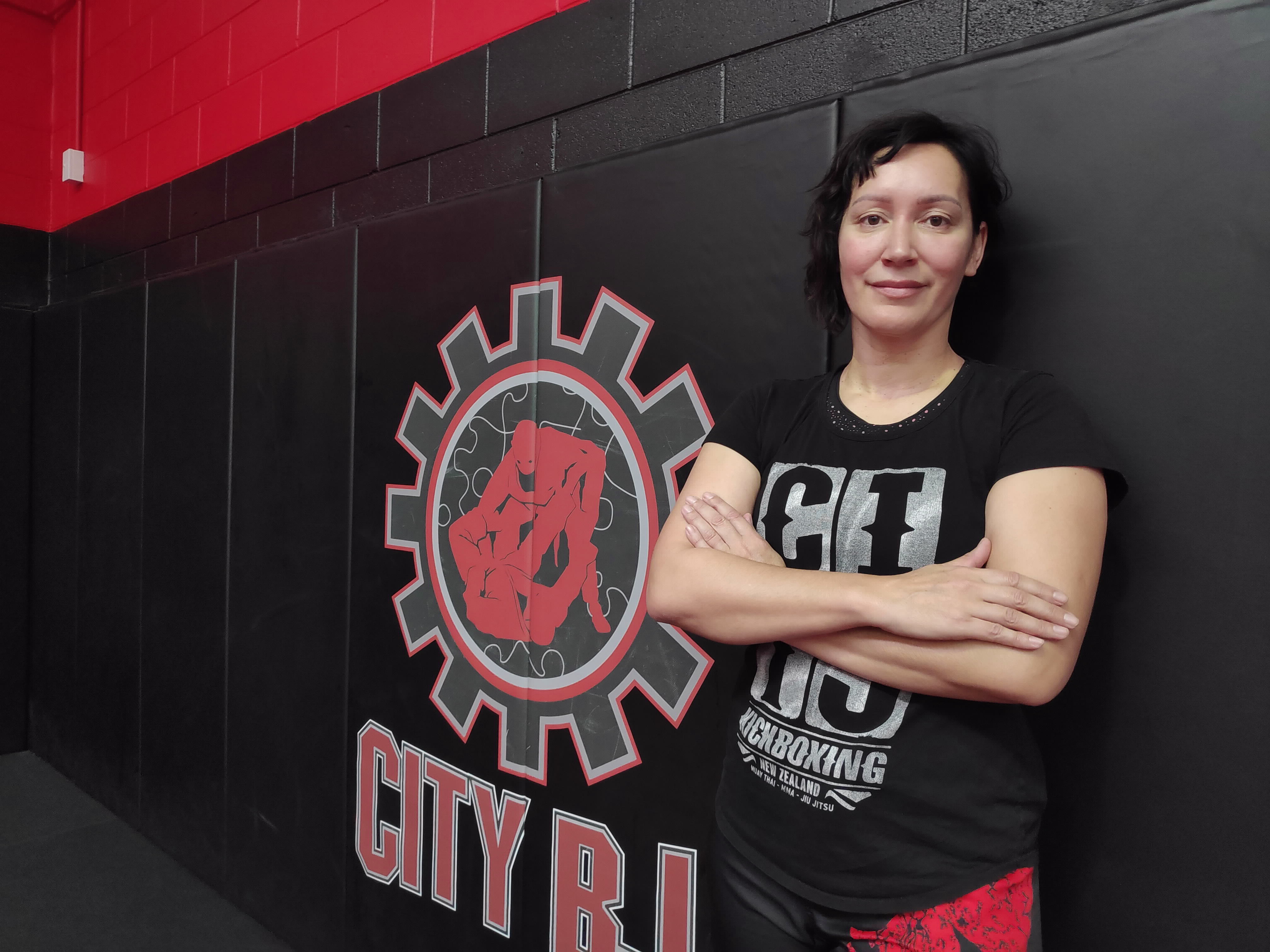 |
DAY FIVE EXTRA: We profile our final wāhine today, the lovely Francene Wineti, scuba diver and Te Ātihaunui-a-Papārangi, Ngāti Rangi, Ngāti Tūwharetoa, Ngāti Kahungunu ki Wairoa.
Iwi / Tribe(s)
Te Ātihaunui-a-Papārangi, Ngāti Rangi, Ngāti Tūwharetoa, Ngāti Kahungunu ki Wairoa
Haakinakina / Sport
Free diving and scuba Diving
Role / position in sport
I used to instruct scuba diving, but now I’m kaimoana chief hunter-gather for my whānau and kairuku/diver for tangihanga. It’s a recreational sport for me now, and I will take any opportunity to head out into the water and go for a dive.
What got you into the sport?
My passion for the moana and connection to Tangaroa and Hinemoana. I was first introduced to scuba diving in 1998 when I did a diploma in Marine Studies at what used to be called the Bay of Plenty Polytech which is now called Toi Ohomai Institute of Technology.
What is your proudest moment in the sport?
There are many. Most are to do with close encounters with our majestic marine mammals, sharks, and other marine life. Free diving is such an individual sport and your success depends on how well you relax in the water, trust your gear, trust and know your limits.
How do you incorporate Te Reo Māori into your sport and life in general?
I’m on my reo Māori journey now, starting last year at Te Wānanga o Raukawa on their full immersion Poutuarongo Reo/degree programme. The journey won’t stop at the end of the programme, I will always be learning and challenging myself to learn more with an open mind and open heart.
Before a dive, it is always good practice to do a karakia, acknowledge your surroundings and prepare yourself before getting into the water, and before heading down for a dive. I use a specific Karakia for wāhine that dive. It is particularly for the skill of diving and acknowledging Hinemoana – she is the maiden of the sea. What is better than to command Hinemoana to come and guide you on your dive! The proudest moment is when you find a well-hidden crayfish, you welcome it into your catch bag, and then you enjoy cooking it up for your loved ones.
What are your aspiration for Te Reo Māori?
To normalise Te Reo Māori in Aotearoa.
What is the one thing you want to see for future NZ women and girls in terms of play, active recreation and sport?
Gender equality. Women in sport to get treated the same as men in sport, local, regional, and international levels. For women as we get older to keep participating and engaging in play and active recreation and sport. Kaua e whakamā wahine mā, patua te taniwha! – don’t be shy ladies, overcome the fear. Provide pathways to increase participation for women as well as make available more culturally distinctive pathways to participate. Government supporting our traditional activities like waka ama, kapa haka, diving, and kaimoana collecting for events as terms of play, active recreation and sport. For example, for Māori we dive because of our connection to water, this should be recognised just like we recognise and fund sports like soccer playing on Saturday mornings.
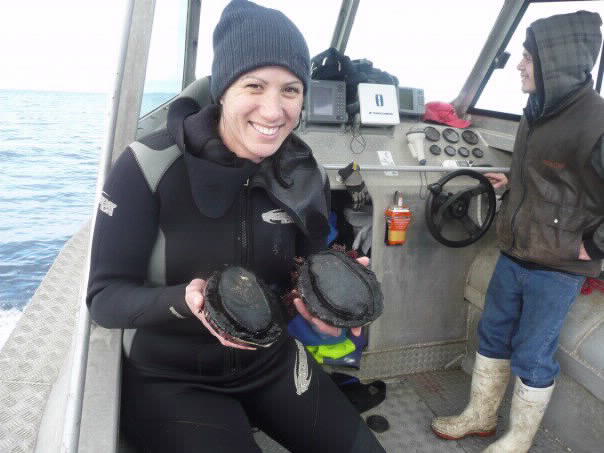 |
DAY FIVE: Our media partners at Newsroom featured such a great piece on Verity Sharland today we decided to share theirs! Verity is of Rangitāne descent, plays for the Central Mysticks and is becoming one of the top women’s hockey coaches in Aotearoa.
Article credit to the wonderful Suzanne McFadden – LockerRoom.
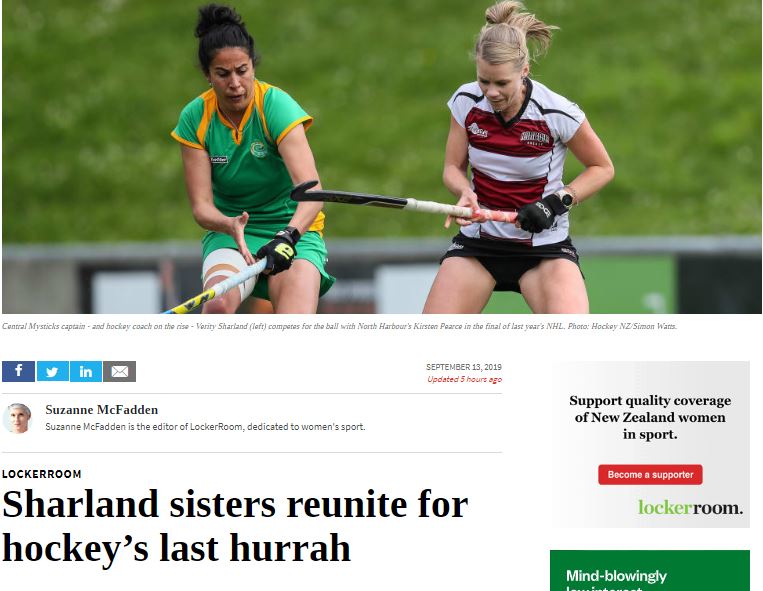 |
Photo Credit: Simon Watt, Hockey NZ
DAY FOUR: We speak to Kirikaiahi Mahutariki, Te Arawa and a member of the Women In Sport Aotearoa (WIPSA) board.
Iwi / Tribe(s)
Ko Te Arawa, ko Mataatua, ko Tongareva (Kūki ‘Āirani), ko Tahiti ōku iwi.
My iwi are Te Arawa, Mataatua, Tongareva (Cook Islands) and Tahiti.
Hākinakina / Sport
He maha aku hākinakina i ngā tau kua pahure nei. Ināianei, ko te mamau noa iho.
I have played a number of sports over the years. At the moment the only sport I am doing is Jiu Jitsu.
Role / position in sport
He mema ahau i te poari ō Ngā Wāhine Hākinakina o Aotearoa.
I am a member of the Women In Sport Aotearoa (WIPSA) board.
What got you involved with Women In Sport Aotearoa (WIPSA)?
It started with a desire to support and advocate for women and girls in sport in Aotearoa and I had an initial kōrero with Sarah Leberman (co-Chair) following a presentation she gave for Global Women. Then Ingrid Cronin-Knight (Foundation Member) joined a second conversation, followed by Julie Paterson (co-Chair) in a third conversation. That led to other discussions with a wider group of wāhine set on the same goal, and we set up the organisation and became the delivery agent and Secretariat for the Global IWG for Women & Sport in less than a year.
What is your proudest moment for Women In Sport Aotearoa (WIPSA)?
There have been a number of proud moments along the way. Some include partnering with a number of Aotearoa organisations to bid for the IWG, winning the IWG bid, representing Aotearoa at the IWG Global Conference in Botswana last year, partnering with the New Zealand government on its strategy for women and girls in Aotearoa and generally being a part of the movement to support and advocate for women and girls in sport.
How do you incorporate Te Reo Māori into your sport and life in general?
He ārero Māori tōku, ā he ngākau nui nōku ki te reo me ōna tikanga ahakoa te aha. Ko te wawata nui, kia Māori te reo, kia rangona ai i ngā wā katoa, i ngā wāhi katoa.
Te Reo Māori is an integral part of my life in general. I am a champion of te reo being normalised and used in all situations and speak Māori whenever I am able.
We have also purposely incorporated te reo in to our Women In Sport Aotearoa (WIPSA) strategy, we use the reo in documentation and our internal and external communications as appropriate and we work with the haukainga (local iwi or hapū) and their tikanga for major events and conferences.
I am also lucky that at Te Maru Jiu Jitsu where I train, my coach Nic Te Aute speaks te reo, so he often gives instructions in te reo and when I’m conversing with him, whether it’s on the mats or off the mats, it’s mostly in te reo.
What are your aspirations for Te Reo Māori?
I want to see the reo valued and normalised in Aotearoa. I want people to feel safe to give it a try and to use the reo that they know. To me the reo is comprised of a culture and a set of values which is respectful and inclusive, and provides a journey of self-identity, regardless of your heritage. I have had the privilege to work on a reo Māori app in my paid job (ASB Bank Ltd) together with my colleague Tama Nightingale-Pene (Ngāti Hauā). This week we have launched Kete Aronui in both the App Store and Google Play which provides an introduction to te reo and cultural practices. Learning te reo is a journey, so regardless of your fluency and knowledge, there is always something else to learn.
What is the one thing you want to see for future NZ women and girls in terms of play, active recreation and sport?
I want to see Aotearoa become a place where women and girls have equity (being more than equality in my eyes) in all parts of play, active recreation and sport. A place where wāhine and kōtiro have the same opportunities and access as tāne and tama, and people can have a go at anything and make a career out of it if they desire to.
It would be an Aotearoa where your specific reo, culture and heritage are valued, acknowledged and welcomed. That requires all parts of our society to contribute to the movement and be a part of the solution(s).
Waiho i te toipoto, kaua i te toiroa.
There is strength in solidarity, not in isolation and division.
 |
Photo credit: Monirul Bhuiyan / Press Photo (Botswana), Kiri is second in from the right.
DAY THREE: Today we feature Ataahua Papa, crew member and sailor on the Waka Hourua, and a paddler for Waka Ama.
Iwi / Tribe(s)
Ko Ngaati Koroki Kahukura, ko Ngaati Mahuta, ko Waikato-Tainui ooku iwi.
Ngaati Koroki Kahukura, Ngaati Mahuta and Waikato-Tainui are my iwi.
Haakinakina / Sport
Ko waka hourua, ko waka ama ngaa haakinakina e whaaia e au.
Double hulled traditional sailing vessels and outrigger canoes are my sports.
Role / position in sport
He Kaumoana waka hourua, he kaihoe waka ama ooku tuuranga
I am a crew member / sailor on the waka hourua and a paddler for waka ama.
What got you into the sport?
He toomina nooku kia whakakotahi ai maatou ko te mahi whakatere waka, ko te taiao, kia hoki ki te wai, ahakoa moana, ahakoa awa, ahakoa roto.
A strong desire to revisit the wayfinding culture of our tupuna and reconnect with the taiao in a way that brings me in contact with water.
Waka ama is a way to stay connected with our waterways that also challenges paddlers to stay in tune with their hoa hoe, working together to propel forwards and achieve a common goal.
What is your proudest moment in the sport?
Ia waa ka oti te mahi, ka poho kereruu ahau i te tuutukitanga o te wawata.
There is no one proudest moment. Every time we finish a sail on the moana or a paddle on the awa, I feel that I have accomplished something big.
How do you incorporate Te Reo Maaori into your sport and life in general?
He aarero Maaori tooku, aa he ngaakau nui nooku ki te reo me oona tikanga ahakoa te aha. Ko te wawata nui, kia Maaori te reo, kia rangona ai i ngaa waa katoa, i ngaa waahi katoa.
Te Reo is an integral part of these sports as well as in my life in general. I am a champion of te reo being normalised and used in all situations and speak Maaori whenever I am able.
What is the one thing you want to see for future NZ women and girls in terms of play, active recreation and sport?
Kei roto i ngaa waahine katoa te kooingoingo, ngaa pukenga me te puutohe kia eke ki ngaa taumata tiketike o ngaa mahi katoa. Kua piki ake ngaa waahine e hoe waka ama ana, kia kitea ai ki ngaa riiketa me ngaa whakataetae waka ama aa rohe, aa motu hoki.
Waahine have the talent, ability and determination to be champions at all levels of sports. Waka ama has seen a huge resurgence of waahine and kootiro participating through the years and this is evident at all regattas and national competitions.
He whakaaro whakakapi – closing thoughts:
Whaaia e koe te iti kahurangi, ki te tuohu koe me he maunga teitei
Strive for the pinnacles of excellence, let only the loftiest of mountains detain you.
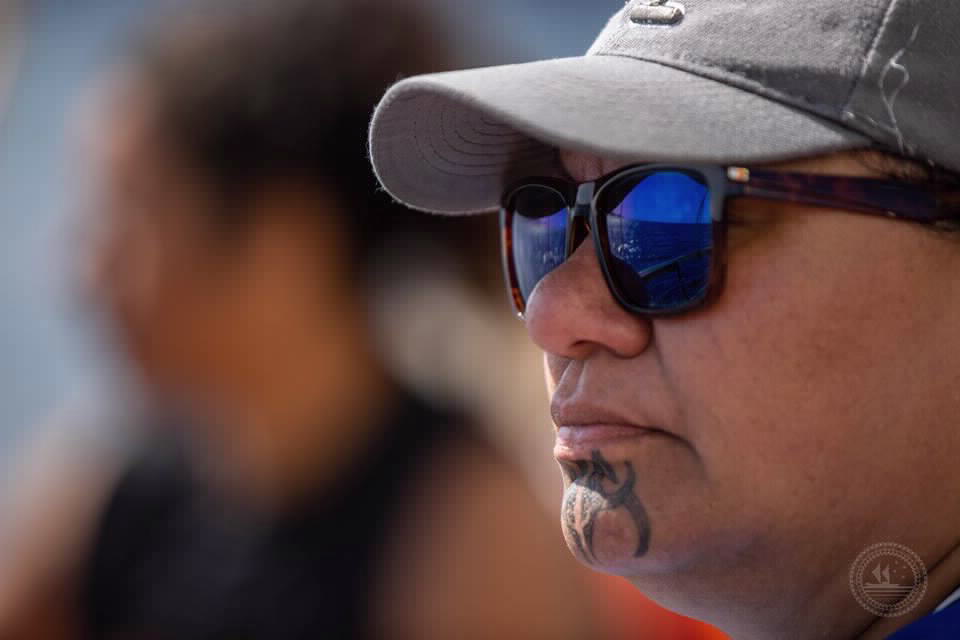 |
DAY TWO: Today we profile Jody Cameron, Ngapuhi and Assistant Coach for the Tall Ferns.
Iwi / Tribe(s)
Ngapuhi
Hapū / Sub-tribe(s)
Ngati Hine
Hākinakina / Sport or your role in sport?
Basketball (Tall Ferns Assistant Coach / North Harbour Women’s Development Officer)
How long have you been doing the sport?
I’ve been involved in Basketball since I was five years old, playing the game as a Junior, Senior and now currently involved in a coaching role.
What is your role / position?
Assistant Coach with Tall Ferns, High School Coach with Saint Marys in Ponsonby, Harbour Breeze Senior Women’s Coach, North Harbour Women’s Development officer.
What got you in to the sport?
My mum, she played and coached, I watched her play as a young girl and filled in when teams were short a player. I loved this game over all other sports because I could play and develop at both ends of the court… I could play in every position.
How do you incorporate Te Reo Māori in to your life?
I have recently enrolled in the Te Wananga o Aotearoa – He Papa Tikanga module to reconnect with the language of my grandmother who played an important part in the pathways I chose. I do not speak fluently yet but sing many of the waiata that I grew up with, usually in the car travelling, or when I am needing to find some quiet time to focus on the tasks ahead. The waiatas bring me solace and remembrance of my childhood/origin and remind me of the strength, support and love of who I am and where I come from.
What is the one thing you want to see for future women and girls in the world of sport, play and recreation?
Increased visibility of a more diverse woman in sport, play and recreation. More diverse role models.
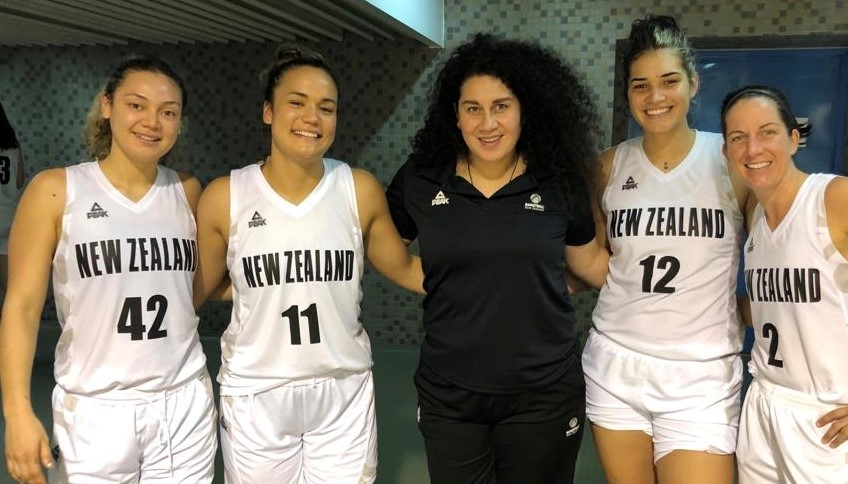 |
Pictured is Jody with some of her Tall Ferns players – Jody is centre (in black).
DAY ONE: Today we celebrate Te Aho Jordan, Ngāti Porou and Kaiwhakaako (Coach) of Kī-O-Rahi, a sport that pays tribute to our ancestors, our reo and our Māori culture. To find out more about Kī-O-Rahi, visit their website.
Your Iwi / Tribe(s)
Ngāti Porou
Your Hapū / Sub-tribe(s)
Te Whānau ā Tūwhakairiora rāua ko Te Aitanga ā Mate
Your Hākinakina / Sport
Kī-O-Rahi
What is your role / position?
Kaiwhakaako (Coach)
What got you in to the sport?
Learning as a rangatahi at Te Kura Kaupapa Māori o Tuia te Mātangi. It wasn’t just the game that interested me, it was also the kōrero and pūrākau behind Kī-O-Rahi.
What is your proudest moment in the sport?
Watching Ōpōtiki College learn and grow the sport here in Te Whakatōhea. 2019 was the first year Ōpōtiki College entered a Kī-O-Rahi team into a regional competition. It was also my first year coaching. I loved watching each rangatahi grow in confidence and work together. Seeing whanaungatanga and kotahitanga flourish within the team was my proudest moment. It gives me hope for our future leaders and for Kī-O-Rahi.
How do you incorporate Te Reo Māori in to your sport and life in general?
I try to incoporate little phrases and kupu (words) during my conversations. Mēnā ka marama aku rangatahi ki te kōrero Māori, ka whakawhiti kōrero mātou. If I knew my students were proficient in the Reo, we would converse in Reo Māori.
Karakia before we left for our competitions, and singing waiata Māori during our travels was my fave!
How has your Reo journey been?
It’s hard to seperate my reo journey from my journey about self identity. I learnt Te Reo as a young person and was a foundation student for Te Kura Kaupapa Māori o Tuia te Mātangi in Nelson, South Island. It was a difficult start, as I had to flip my whole mindset and pose the question as to who I really was, as a young woman, a teenager and Māori. Now, I have found full appreciation for my language and I am confident with who I am. I’m still learning everyday and I wouldn’t yet say I’m fluent. Ki au nei, ko te mea nui, ko te haerenga, ehara ko te wāhi whakamutunga. In my opinion, the most important thing is the journey, not the destination.
What are your Reo aspirations for yourself and Aotearoa at large?
I hope to be able to live and breathe Te Reo Rangatira! Ko taku wawata, ka taea e au te kōrero ia rā, ia rā me te kore hapa! My goal is to speak Māori everyday without any mistakes!
What is the one thing you want to see for future Aotearoa women and girls in terms of play, active recreation and sport?
I want our wāhine to know how valued they are in any sport! I want to see more support for our professional women in the sporting world. I can remember every female coach I’ve ever had in my life, it’s super influential to have a strong woman leading and teaching sport. I had the privilege to have my manager, Karllie Clifton guiding me through my first coaching experience, having wāhine rangatira around like her really help to give our lesser-known sports a chance to grow! It would be amazing to have more support for those wāhine wanting to coach, manage or support all sport in Aotearoa.
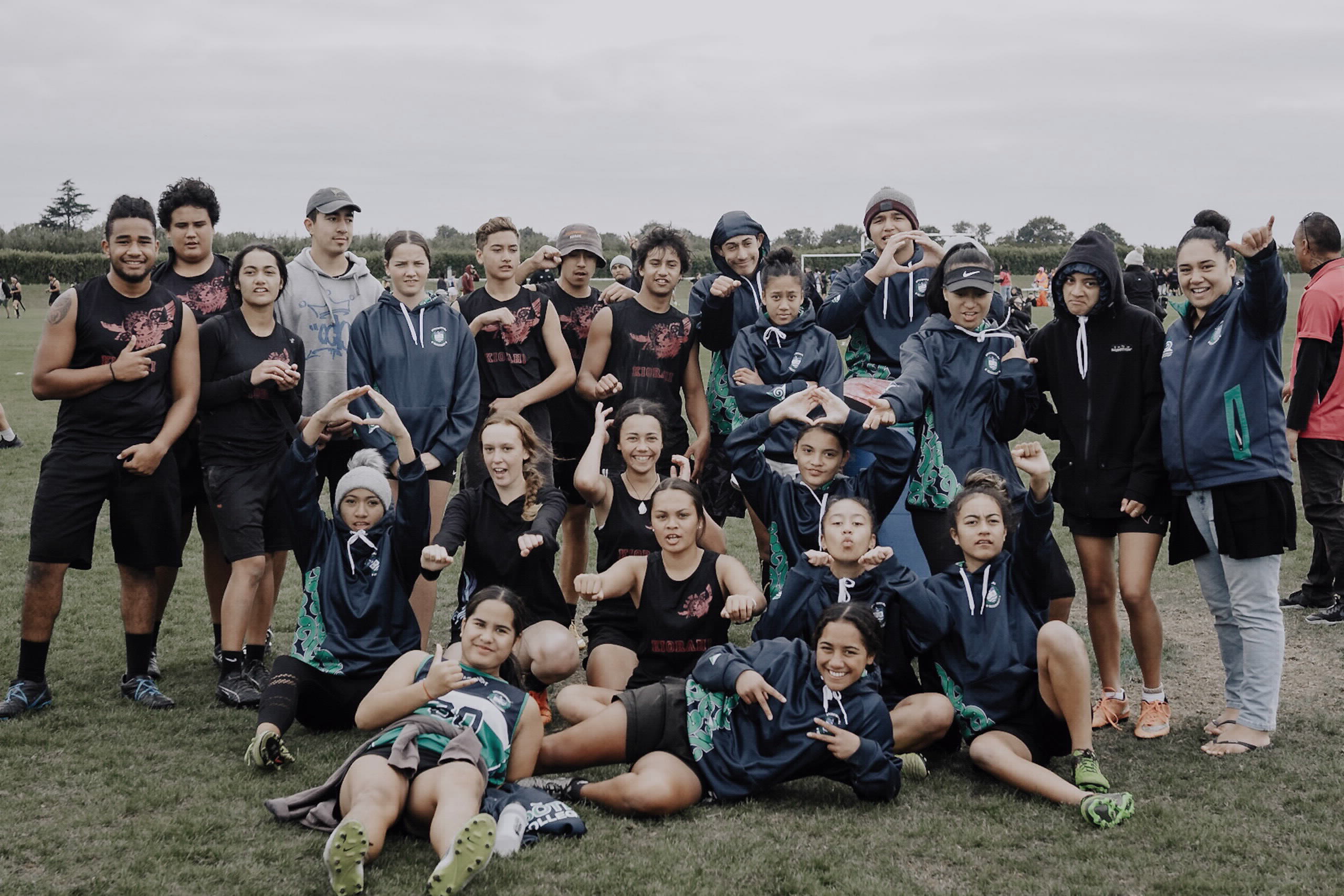 |
Pictured is Te Aho’s Kī-O-Rahi team (blue and green Uniform) and Tolaga Bay Area School (UAWA) at Ngā Whakataetae ā Motu 2019 (Nationals). Te Aho is standing on the far right (jeans and blue jacket).

